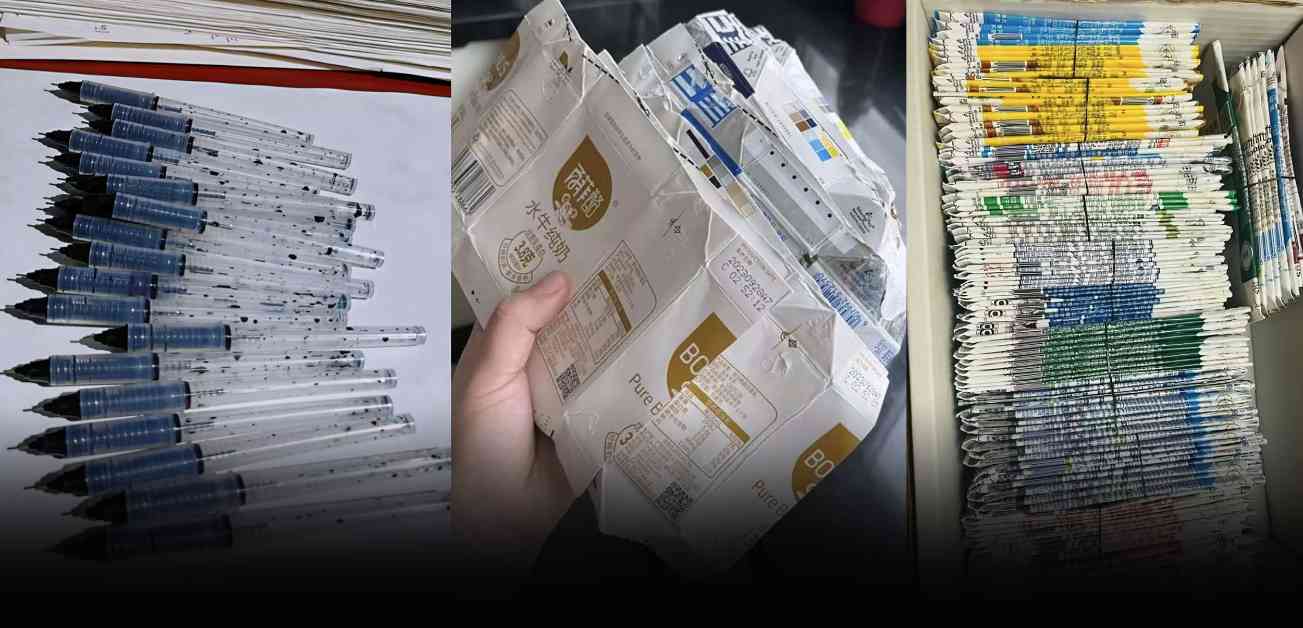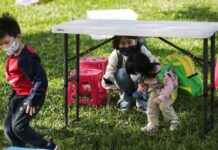China’s Parents Embrace Online Bulk-Buying of Recycling Waste
In China’s bustling e-commerce landscape, an interesting trend has emerged – the online bulk-buying of recycling waste. This unconventional market is seeing a surge in demand for items such as empty milk cartons and used pen refills, driven primarily by Chinese parents looking to assist their children in completing school recycling projects.
The motivation behind this burgeoning trade lies in the increasing emphasis on environmental awareness in China’s education system. Schools are assigning students tasks aimed at instilling good recycling habits, but the pressure to meet strict quotas is pushing families to seek out alternative solutions.
Pressure on Families to Source Recyclables
For many Chinese parents, the school recycling projects have become a source of stress and pressure. Some schools mandate that students collect large quantities of used plastic items each month, with the threat of impacting grades and even teachers’ performance evaluations looming over them.
This strict system has led to families struggling to keep up with the required amounts of recyclables. In response, many parents have turned to online platforms to purchase bulk quantities of waste to fulfill the quotas set by the schools. Recycling waste has become one of the most sought-after product categories on major Chinese e-commerce platforms, reflecting the growing demand for these items.
The Online Market for Recycling Waste
Platforms like Alibaba’s secondhand trading app Xianyu have seen a proliferation of vendors selling a variety of recycled items, from milk cartons to pen refills. Stacks of 100 empty milk cartons, cleaned and dried for recycling, are typically priced at around 30 yuan ($4), while bundles of 100 used pen refills can be purchased for approximately 20 yuan.
For parents like Zhang Yunping, who is the mother of an elementary school student in Zhejiang province, buying recycling waste online has become a regular practice. Zhang shared that her child’s school often requires each student to submit 100 milk cartons per month, and failing to do so can impact the child’s grades. As a result, Zhang finds it more convenient to purchase the necessary items online to ensure compliance with the school’s requirements.
Challenges Faced by Parents and Teachers
The pressure to meet recycling quotas set by schools is not only felt by parents but also by teachers. Lin Ya, an elementary school teacher in Shanghai, highlighted the challenges faced by educators as some schools tie teachers’ performance evaluations to their ability to meet recycling quotas.
This rigid approach to environmental education has sparked criticism and concern among Chinese social media users, many of whom were unaware of the extent of these school requirements. The topic of purchasing empty cartons and pen refills online has sparked widespread discussion, with millions of views on platforms like Weibo.
Criticism of Mandatory Recycling Assignments
The mandatory nature of these recycling assignments has garnered backlash from parents and the public alike. Commentators have criticized schools for imposing burdensome and inflexible tasks on students and their families, citing the already high levels of pressure faced by working parents.
In response to the growing opposition, state-backed media outlets like Guangming Daily have called for a reevaluation of the approach to environmental education in schools. Suggestions include adopting more practical and effective methods to teach children about recycling, such as encouraging them to document eco-friendly practices in their daily lives.
The Ministry of Education in China has also taken steps to address the issue of unreasonable homework assignments, emphasizing the importance of quality over quantity in schoolwork. The focus is on promoting critical thinking and active engagement with environmental issues rather than simply tallying the number of recyclable items collected.
Overall, the trend of online bulk-buying of recycling waste in China reflects a complex interplay of factors, including parental involvement, school requirements, and societal attitudes towards environmental education. As the dialogue around sustainable practices continues to evolve, it is essential to consider the broader implications of these initiatives on families, educators, and the environment.

















